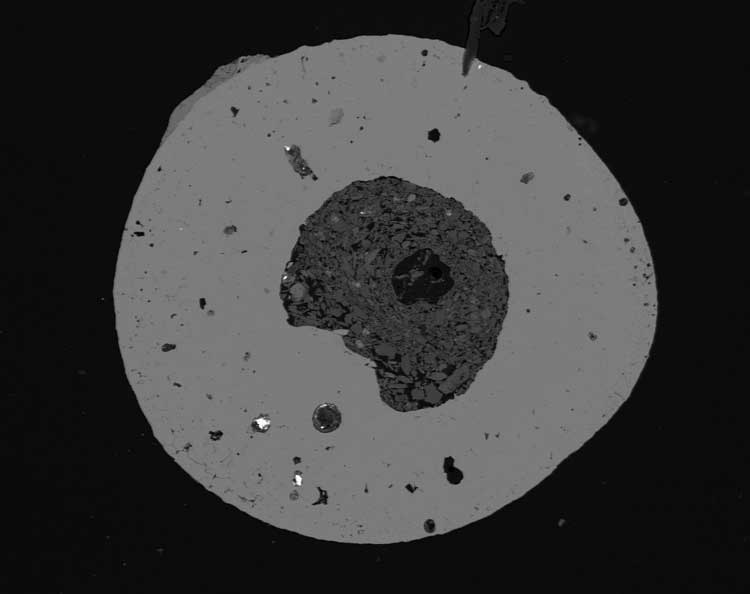One winery in the South of France has an especially unique selling point that has been bottled up for decades: it lies within the impact crater of an ancient meteorite. After over 70 years of speculation, the discovery was made thanks to a new analysis of the rock and soil, which contained so-called “microdiamonds”.
The idea that the depression near the town of Béziers may have been astronomical in origin has been floated since the 1950s but was rejected in 1964 and never explored further. Now, researchers have identified a distinctive blend of extraterrestrial minerals in the soil and determined that it was in fact formed by the impact of an iron-nickel meteorite.
At 200 meters (656 feet) wide and 30 meters (98 feet) deep, the crater is relatively small. Such impact craters are incredibly rare, with only 190 known worldwide and just three recorded in Western Europe, according to the Earth Impact Database. These craters, found in France and Germany, are all much bigger than that at the winery.
“Craters can form in many ways, and meteorite craters are indeed very rare,” study author Professor Frank Brenker from Goethe University Frankfurt said in a statement. “However, I found the various other interpretations of how this depression could have formed unconvincing from a geological perspective.”
Taking a closer look at the soil beneath the vines, Brenker identified dark-colored layers, which, he said, “might be shock veins produced by the grinding and fracturing of the rock, which in turn could have been caused by an impact.”
He also found evidence of breccia – fragmented rock found within a “cement” of smaller particles of mineral. This is typical of meteorite impact craters, as is the discovery of tiny iron- and nickel-rich spheres, which Brenker also found in the samples.
“Such microspheres form either through abrasion of the meteorite in the atmosphere or only upon impact, when a large part of the iron meteorite melts and then reacts with the oxygen in the air. On impact, material shattered at the point of impact might then also be encased,” Brenker explained.
Alongside these celestial spherules, the researchers discovered shock microdiamonds – microscopic fragments of diamond that form under high pressure, such as during a meteorite impact.

A microsphere from the meteorite. Image credit: Frank Brenker, Goethe University Frankfurt
A separate analysis demonstrated that the Earth’s magnetic field was weaker in the crater’s center than in the surrounding area, which is what you’d expect if a meteorite had crashed into it, shattering or perhaps melting the rock and disrupting its magnetism.
Taken together, the findings “[allow] us to draw hardly any other conclusion: a meteorite did indeed strike here,” Brenker concluded.
Given the rarity of such craters, the discovery of another is incredibly exciting and raises a number of questions. The most important of which, of course, is what of the wine?
Having a vineyard in a meteorite crater certainly makes for a good marketing campaign, and this fact wasn’t lost on its owners who aptly named their winery “Domaine du Météore” and have been shouting about its unique history for years.
“The grapes, and the wines we produce from them, taste quite unlike anything else grown in the region or in France – the effect, we are sure, of our astronomical history,” they claim on their website.
The findings will be presented at the 54th Lunar and Planetary Science Conference in Houston, Texas.
Source Link: "Microdiamonds" And Meteorite Crater Discovered Under French Vineyard